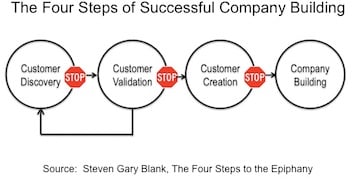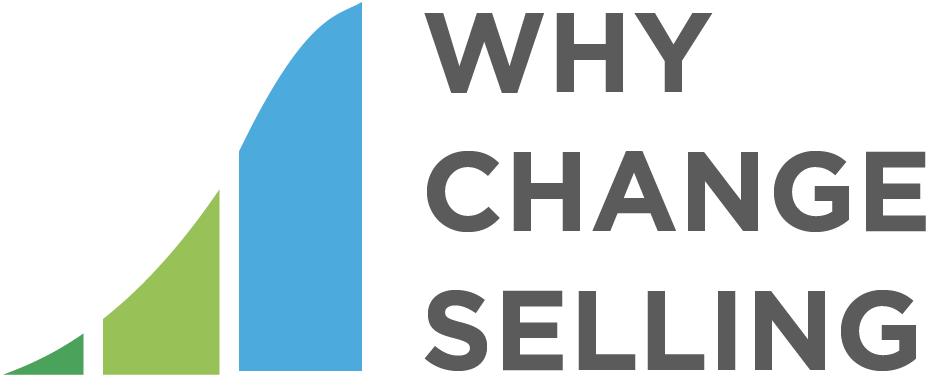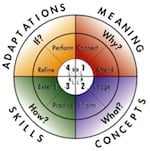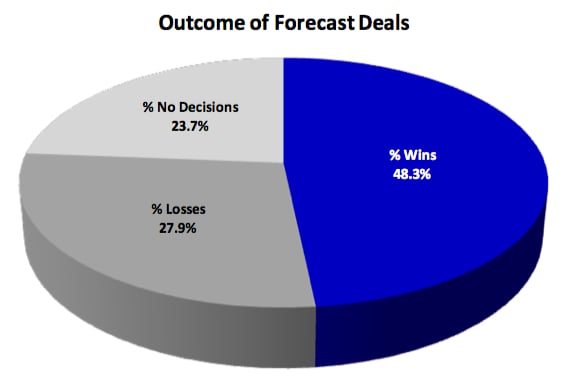In the past couple of months I have met with four entrepreneurs, all highly passionate about their products and excited with the potential for them in the market.
The only problem being, they were all out of cash, having exhausted their savings and angel funding (in each case in excess of US $250K) developing their product and none of them had any paying customers, nor could they define their ideal customer or how they were going to market and sell the product.
I felt for each of these entrepreneurs, but also felt a sense of déjà-vu as the founders spoke passionately about their product and their particular opportunity. I've been here before in a Berkeley spin-out; a video codec start-up that ran out of Angel funding and crashed (did I mention the product didn't work) and know that it doesn't have to be this way.
Steve Blank in his recent post, consultants don't pivot, founders do, stated that entrepreneurs can shoot themselves in the foot when they use consultants at the wrong time and in the wrong way.
The premise is that start-ups exist for founders to discover a scalable and repeatable business model, through a customer development process to get first hand feedback from customers on the product and business model hypothesis...and to iterate or pivot though this process until it is discovered.
Blank asserts that a consultant is at arms-length from the founder and unless entrepreneurs themselves leave the building and meet real prospective customers to get first-hand feedback, it's unlikely they will heed consultants advice in time to react - as their passion for the product creates selective listening.
I considered Steve's points and concur, with a couple of provisos.
1. Consultants can help entrepreneurs in start-ups who are trying to create and sell new technology and who are unfamiliar with lean startup methodology, by suggesting they join the Lean-Startup-Circle on Google, imploring them to read Steve Blank's and Eric Ries' writings and blogs on the subject and to impress upon them the link between the customer discovery and validation process and the likelihood of finding a business model that will lead to success.

2. Consultants can certainly join a startup as co-founders if they believe in the product potential and can get enough of a stake in the company, where the founder will be compelled to listen and take action on their advice....but this would take them out of the consulting role as the customer discovery process and company building is not a part-time job.
3. When the startup is in limbo, burning cash, with a poor model and weak sales. We see this one regularly when the start-up is entering a new market with new technology....see the four different market entry strategies. The problem here is two-fold and consultants can help in developing the correct sales culture and skills to match the way customer buy in the following situations;
- The investor and founder expectations for rapid ramp-up fail to materialize because the early adopter market is risk averse, deals take longer to close and customers need to be sold in a value-created (consultative) way.
- While the founders led the first 20 or so early sales, the sales pro's recruited to sell the novel product fail to achieve success, despite swapping out multiple sales VP's. The problem in selling novel technology in a new market, is that while a sales person may have a great track record selling in a value-added way (e.g ex Salesforce.com), this success does not translate into sales to early adopters who need to be sold in a value-created way (consultatively).
There is no argument that consultants can help accelerate the success of a startup once the founder has found a product/market fit.
In our experience, where consulting contributes most value is in the transition from customer discovery, where where the entrepreneur having discovering a scalable business model moves to company building. Engagements that created value were;
- helping companies discover their competitive DNA and creating clarity in Website messaging and in 1:1 sales conversations, through aligning sales and marketing messaging,
- in helping refine target market focus and in positioning the products in the market through a Messaging Architecture
- in helping the sales team engage buyers around their issues and differentiate their value.
- In creating tools and lightweight and repeatable selling process that matches the buying behavior and risk profile of their customers
- In implementing Inbound Marketing for lead generation and nurturing, where marketing and sales have been less than successful in PPC and cold calling to generate leads.
Advanced Marketing Concepts is relocating our base of operation to the Bay Area of San Francisco in Summer 2010.



